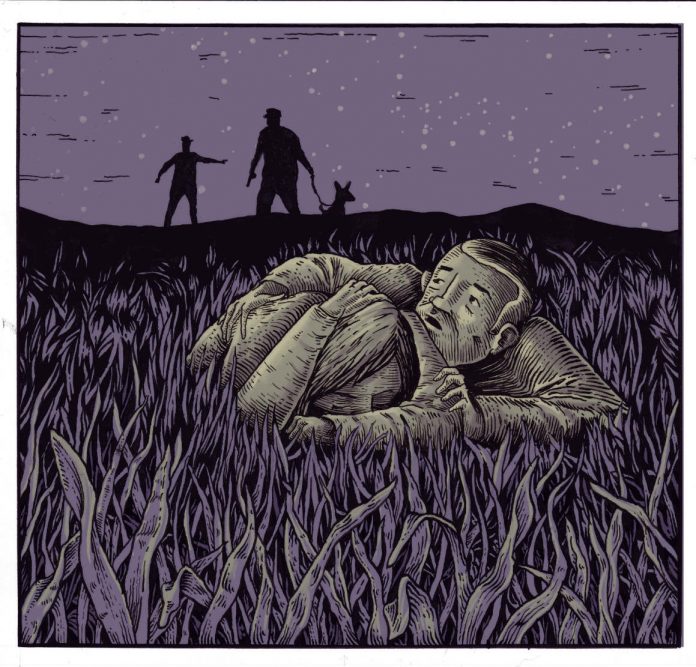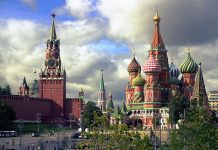The border between Romania and Yugoslavia was named ‘Europe’s bloodiest border’ in the 1980s.
There was no war or refugee crisis on the 546 kilometer frontier. But thousands of Romania were desperate to flee Nicolae Ceausescu’s oppressive communist regime. And they grew more desperate.
Perilous journey
They either went on foot, trying to avoid border patrols or took the perilous journey over the Danube. Many drowned.
They risked their lives_ and livelihoods_ to escape. Many were killed or physically abused in their attempt to escape. Others were handed back and sentenced to prison in Romania.
Now, 32 years after the collapse of communism, a government institute is finally examining what happened.
Some 100,000 Romanians are believed to have fled Romania during the communist era from 1969 to 1989, in search of freedom and a better life, researchers say.
In 1989 alone, there were 50,000 attempts to flee the brutal regime of Ceausescu with its all-pervasive Securitate secret police, food and energy shortages, and isolation from the rest of the world.
Public debate
Hundreds, maybe more, were killed by Romanian border guards. Until now, there has been no public debate about the issue.
The Institute for the Investigation of Communist Crimes on Wednesday began a two-day webinar in which participants discussed the escape from communist Romania.
The illegal border crossings into Yugoslavia and Hungary “were a mass phenomenon, as a manifestation of the anti-communist resistance in the Eastern Bloc,” a statement said.
Participants discussed the mechanism of illegal border crossings, the killing of migrants and violence at the border. Some people swam, others walked, others hid under trains.
“Freedom is won, but it has a price,” said Marina Constantinoiu, a Romanian journalist who has written extensively about the issue,
Debt to victims
“We have a debt to the victims and to our own past… and we mustn’t be tempted that communism is something sexy, because it knew how to hide the truth, compared to which Nazis which faced up to what happened,” she said.
Richard Schmidt, a well-known political refugee, spoke about a woman who had witnessed the killing of her father at Jimbolia in southwest Romania.
“Even now she is unable to speak about it. We hoped she’d take part in this conference. But she couldn’t decide as she is convinced the Romanian state will do nothing to bring light to this case. And the pain is still too great,” he said.
An ethnic German from the Banat region in southwest Romania, Mr Schmidt finally managed to escape over the border, losing a boot on the way, in 1987. He spoke of how some border guards were accomplices in the attempts to flee.
‘Going to Germany’
He said he dreamed of escaping as a young child. “After ‘mum’ and ‘dad’ the next words I learned were “We’re going to Germany.”
“I used to look at the birds flying over the border and I realized we were in a worse position than a bird. I was locked up in a prison and they just flew over the border.”
Journalist Istvan Deak read out a list of Romanians who had been shot dead while trying to cross the border.
Abuses
Romania has been slow to confront the abuses of the communist regime. It still hasn’t properly opened its secret police files. Nobody nobody knows how many informers operated in almost every walk of life: in offices, on factory floors, among friends, in all-day queues for milk and bread, even in families.
Two prison commanders who in the 1950s ran gulags where enemies of the regime were locked up were convicted in recent years on charges of crimes against humanity. But many high-ranking communists continued to play a prominent role in society even after 1989.




















Very interesting article. Can't be told enough, especially in these times where (younger) people really consider communism as a solution for their struggles in life.
Thank you. The issue of young people seeing communism as an answer to their problems was discussed in the seminar.
Good article and a useful one. It’s strange to think that Romania used to look up to Jugoslavia as a free and successful country but because of Milosevic’s flirtation with nationalism that nation no longer exists and the remnant states look up to Romania as a relatively stable (by Balkan standards) member of the EU.